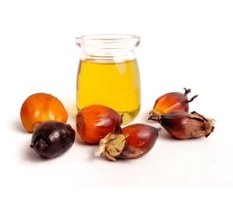Inside BENEO’s new pulse plant: pioneering sustainable protein from faba beans
National President of OTAI and Senior Oil Technologist of India Dr Rajeev Churi urges an evidence-based public dialogue on edible oil choices
In response to a growing number of No Palm Oil marketing campaigns by select food brands, Dr Rajeev Churi, National President, Oil Technologists’ Association of India (OTAI), has expressed concern over what he describes as the deliberate exploitation of consumer sentiment through fear-based messaging.
In response to this recent trend, Dr Churi emphasised the importance of maintaining public discourse on food and nutrition that is rooted in scientific rigour and balanced information. He further urged stakeholders across the food industry, regulatory bodies, and the media to foster and promote informed decision-making by consumers and to refrain from perpetuating unfounded claims.
“These campaigns, which position palm oil as inherently unhealthy, are not supported by scientific evidence. Rather, they appear to be strategies aimed at gaining market differentiation,” said Dr Churi.
It is recommended to rotate oils, such as palm, groundnut, sesame, rice bran, sunflower etc. to ensure a balanced fatty acid intake.
Dr Churi further added, “The growing and widespread use of ‘No Palm Oil’ narratives risks distorting public understanding of palm oil – which is a safe, widely consumed, and globally regulated edible oil. Palm oil, when used responsibly and as part of a balanced diet, is as safe as any other edible oil. It is imperative that discussions around its use are driven by data, not marketing rhetoric. It has been unfairly vilified, despite being nutritionally sound and a key part of diets worldwide. Demonising it will not make processed food healthier; it only confuses consumers and undermines India’s goal of self-reliance in edible oils.”
Palm oil’s nutritional profile is backed up by thorough research. It contains a near-equal balance of saturated and unsaturated fats, zero trans fats, and no cholesterol. Rich in tocotrienols (a form of vitamin E), carotenoids, and natural antioxidants, palm oil supports heart, brain, and cellular health. These compounds have been shown to lower LDL cholesterol and may offer protection against Alzheimer’s and cardiovascular diseases.
Dr Churi stressed that marketing gimmicks targeting a single oil distract from the core principles of good nutrition: balance, variety, and scientific understanding. Attacking one fat source without substantiated evidence misleads the public and weakens national efforts towards food security.

